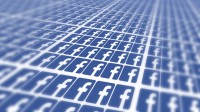Evaluating Possible Impact of Recent Ad Boycott on Facebook
August 5, 2020
It’s time to assess the impact of an advertiser boycott of Facebook, started on June 17 to protest that company’s handling of hate speech and misinformation. Following the urging of civil rights groups Color of Change, the Anti-Defamation League and the NAACP, 1,000+ advertisers publicly joined in the boycott, dubbed #StopHateForProfit, which was intended to last for the month of July. Other advertisers pulled back on spending but did so less publicly. Facebook has 9+ million advertisers.
The New York Times says that, “the advertiser boycott of Facebook took a toll on the social media giant, but it may have caused more damage to the company’s reputation than to its bottom line.” According to Pathmatics, “the 100 advertisers that spent the most on Facebook in the first half of the year spent $221.4 million from July 1 through July 29, 12 percent less than the $251.4 million spent by the top 100 advertisers a year earlier.”

Of those 100, only nine companies “formally announced a pullback in paid advertising, cutting their spending to $507,500 from $26.2 million,” and many of them have stated they plan to return.
Facebook reported that, “the top 100 spenders contributed 16 percent of its $18.7 billion in revenue in the second quarter, which ended on June 30.” The company also stated that, “during the first three weeks of July … overall ad revenue grew 10 percent over last year, a rate the company expects to continue for the full quarter.”
At Kansas-based digital agency DEG, 60 percent of its clients joined the boycott, but “four out of five are planning to Facebook in August” because “it’s too much for them during a difficult economic time to remain off.”
RepTrak executive vice president Stephen Hahn-Griffiths wrote that, “what could really hurt Facebook is the long-term effect of its perceived reputation and the association with being viewed as a publisher of ‘hate speech’ and other inappropriate content.” “You could argue that Facebook has a bloodied nose and two reputational black eyes,” he added.
At Allen & Gerritsen, vice president of media Derek Welch said half of their clients participated in the boycott to “do something that is meaningful and tangible in a sea of brands putting out very well-meaning statements.”
WSJ notes that, “the ad industry was already in upheaval when the boycott began, as businesses closed, layoffs swept through the economy and homebound consumers slowed their shopping.” Microsoft, Starbucks, Unilever and Target already “took a temporary break” from Facebook in June and “many companies were reacting to pandemic-related marketing budget cuts and widespread protests over racism and police brutality.”
Companies that didn’t join the boycott but cut down on ads include Procter & Gamble, Samsung, Walmart and Geico; Hershey and Hulu reacted by increasing their spending on Twitter and YouTube. Beam Suntory, Ben & Jerry’s, and Coca-Cola “vowed to continue pressuring Facebook, especially as the presidential race heats up.”
Anti-Defamation League chief executive Jonathan Greenblatt noted the boycott “was a warning shot, an opening salvo.” Organizers now plan to take the boycott into Europe and include Facebook users.

No Comments Yet
You can be the first to comment!
Sorry, comments for this entry are closed at this time.